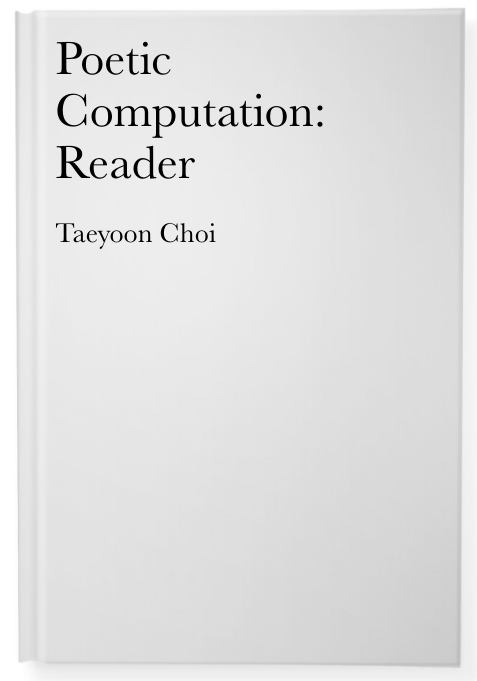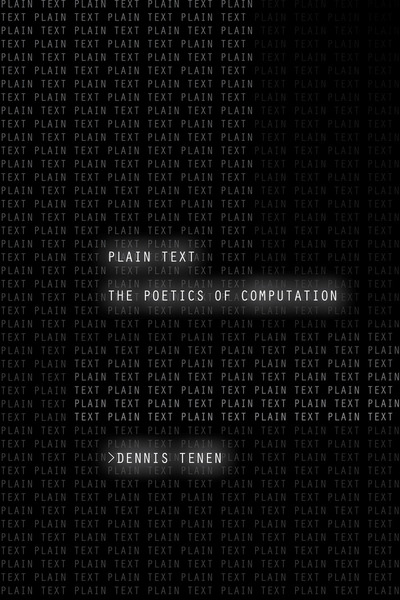Computational Culture, 6: Computing the Corporeal / Geographies of Software (2017)
Filed under journal | Tags: · body, computation, computing, dance, geography, movement, movement computing, software, software studies
This issue of Computational Culture consists of two thematic sections. The section “Computing the Corporeal” is concerned with the critique of “the way in which machine computers affect movement-based creativity, and movement-based thinking.” The section “Geographies of Software” presents “geographical approaches to software studies.”
With thematic texts by John Stell, Stamatia Portanova, Scott delaHunta, Anton Koch (section 1), Will Payne, Warren Sack, and Pip Thornton (section 2), editorial introductions, and review section.
Section “Computing the Corporeal” edited by Nicolas Salazar Sutil and Scott delaHunta
Section “Geographies of Software” edited by Nick Lally and Ryan Burns
Published in November 2017
Open Access
ISSN 2047-2390
Taeyoon Choi: Poetic Computation Reader (2017)
Filed under book | Tags: · code, computation, computing, pedagogy, poetics, software, technology

This online book discusses code as a form of poetry and aesthetic while raising ethical questions associated with it. It is based on Taeyoon Choi’s lectures at the School for Poetic Computation, an independent school he co-founded in New York City.
Edited by Hannah Son
Designed by HAWRAF
Published 2017
Dennis Tenen: Plain Text: The Poetics of Computation (2017)
Filed under book | Tags: · book, computation, human-computer interaction, language, literary theory, literature, media, media theory, poetics, software, text, theory, translation

“This book challenges the ways we read, write, store, and retrieve information in the digital age. Computers—from electronic books to smart phones—play an active role in our social lives. Our technological choices thus entail theoretical and political commitments. Dennis Tenen takes up today’s strange enmeshing of humans, texts, and machines to argue that our most ingrained intuitions about texts are profoundly alienated from the physical contexts of their intellectual production. Drawing on a range of primary sources from both literary theory and software engineering, he makes a case for a more transparent practice of human–computer interaction. Plain Text is thus a rallying call, a frame of mind as much as a file format. It reminds us, ultimately, that our devices also encode specific modes of governance and control that must remain available to interpretation.”
Publisher Stanford University Press, 2017
ISBN 9781503601802, 1503601803
x+268 pages
Reviews: N. Katherine Hayles (Critical Inquiry, 2017), Jan Baetens (Leonardo, 2017), James Edward Draney (LARB, 2017), Maisie Ridgway (Textual Practice, 2018).
Comments (2)
